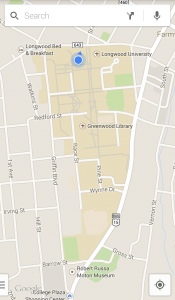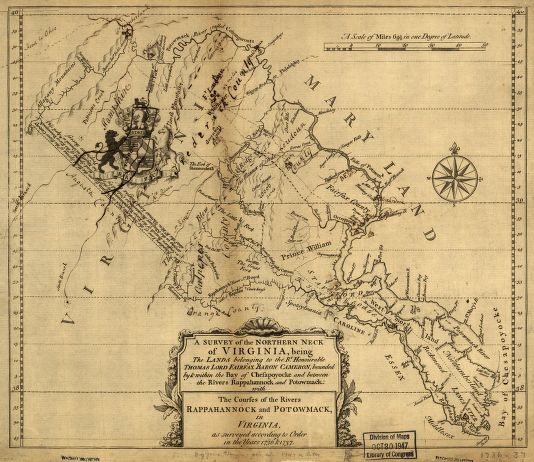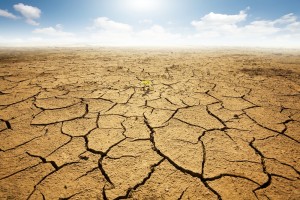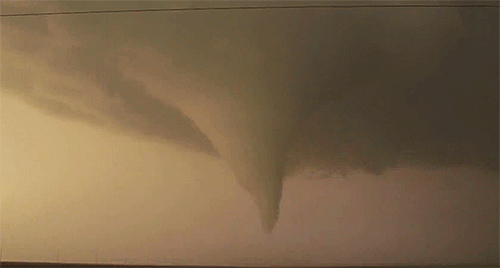Geography: for most of us, it’s that boring grade-school subject in which we had to memorize capitol cities, rivers and mountain ranges. Well, think again.
Geography is everywhere you look—from the phones we carry in our pockets to the navigation systems in our cars to the debate over geo-political issues, says Dr. Ed Kinman, a Longwood University geography professor who is the coordinator of the Virginia Geographic Alliance, a partnership between university faculty and K-12 educators sponsored by the National Geographic Society.
1. You want a high-paying job.
Who doesn’t want to make a great salary when they leave college? Anyone? Well, you probably didn’t know that the U.S. geospatial services industry generated $73 billion in revenue in 2011 and comprised more than 500,000 high-paying jobs. There are plenty of jobs available for savvy geographers who are trained in understanding complex global issues on a range of scales, from tracking incidents of tornadoes to understanding deep-rooted conflicts in the Middle East.
 2. People carry geographers in their pockets.
2. People carry geographers in their pockets.
Chances are, you have a smart phone. Have you ever found a restaurant on Yelp? Searched, “Thai restaurants near me”? Asked your car passenger to find directions after you have gotten hopelessly lost? All of the GPS and location-based services that your apps offer—from detailed driving directions to weather forecasts to dating programs to restaurant finders—use the skills of…you guessed it: a geographer.
“It’s a field that’s truly everywhere,” said Kinman. “Geography touches nearly every aspect of our lives, and we rely on it every day without even thinking about it.”
3. There’s a shortage of employees for a growing field.
The geospatial technology industry—meaning geographic information systems (GIS), global navigation systems, light detection and ranging, remote sensing and location-based services, among others—is growing by more than 10 percent each year. That means that in the next 5-10 years, there will be tens of thousands of new jobs as highly paid scientists, technicians, surveyors and programmers for trained geographers. And that means that students with geography degrees will be in high demand.
4. You’ll have interesting insight into things that affect everyone… like food prices.
The reason the cost of milk jumped 20 percent? There’s a major drought in California that’s affecting everything from available drinking water to food prices across the country. Want to know why? Ask a geographer.
One of the main reasons is that we have been channeling water for decades into what was once the desert to support population growth, which has ultimately led to a water shortage. This relationship between human and physical systems is a core component of geography education—and gives geographers the kind of expertise that is extremely valuable.
5. You can put history in context.

[Credit: Library of Congress, Geography and Map Division]
Right now, a geography student at Longwood University is poring over actual 18th century shipping records from Virginia ports as part of a collaborative effort to determine how the Northern Neck is connected to the larger Atlantic world. Plotting out routes and linking ports that trafficked heavily in goods and slaves hasn’t been done for the Northern Neck, and it takes a student with a solid foundation in physical geography to understand how such trade was facilitated.
6. You’ll understand global issues.
Why is the Crimean peninsula such a contested region? Why is a water shortage in the Middle East threatening to further exacerbate historic tensions there? Much of the answer has to do with geography.
Many global issues are rooted in the discipline. In 2011, Keith Masback, formerly the Army’s first director of intelligence, surveillance and reconnaissance integration, said that geography is at the heart of integrated intelligence, and that the current lack of geography education and understanding is a critical national security issue. From historic natural boundaries to modern-day struggles over territory, geography provides a unique understanding of geo-political issues.
7. You know more… when disaster strikes.
Geographers monitor the impact of natural disasters using data from the field and satellites. Whether it’s assessing the impact of floods on agricultural lands, tracking meteorological changes to predict the spread of wildfires or planning urban evacuation routes, geographic skills are vital.
8. You don’t have to study JUST geography.
Most geographers are experts in other disciplines as well, said Kinman. So whether you’re interested in language, teaching, art, political science, sociology or really any other discipline, geography can enhance your understanding (and improve your career prospects) in that field.
9. You’ll be a real estate expert.
What are the three most important words in real estate? “They may as well be ‘geography, geography, geography,’” said Kinman. “When you are looking at a new home, everyone considers geography, even if they don’t think they are. People look at things as diverse as weather patterns to how rocky the soil is for their gardens.”
10. You can make businesses more profitable.
From site selection to logistics, entrepreneurs and mega-corporations alike use geographic tools when planning their next enterprise. For businesses like restaurants and hotels, the precise location of their building can lead to massive exposure and a thriving business, or little recognition and flagging sales. Especially in the rapidly growing logistics field, geography plays a central role in successful businesses.
11. It makes you cooler.
Let’s face it: bringing a different perspective to the conversation makes you stand out from everyone else who just repeats what they heard from television talking heads. You’ll be the antidote to that, which is pretty cool.








